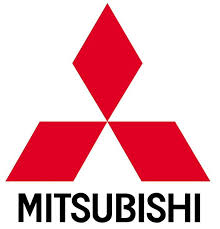Raider 2WD V6-3.7L (2008)

Coolant: Description and Operation
COOLANT
HOT COOLANT
WARNING
Antifreeze is an ethylene-glycol base coolant and is harmful if swallowed or inhaled. If swallowed, drink two glasses of water and induce
vomiting. If inhaled, move to fresh air area. Seek medical attention immediately. Do not store in open or unmarked containers. Wash skin
and clothing thoroughly after coming in contact with ethylene-glycol. Keep out of reach of children. Dispose of glycol based coolant properly,
contact your dealer or government agency for location of collection center in your area. Do not open a cooling system when the engine is at
operating temperature or hot under pressure, personal injury can result. Avoid radiator cooling fan when engine compartment related
service is performed, personal injury can result.
CAUTION
Use of Propylene-Glycol based coolants is not recommended, as they provide less freeze protection and less corrosion protection.
The cooling system is designed around the coolant. The coolant must accept heat from engine metal, in the cylinder head area near the exhaust valves
and engine block. Then coolant carries the heat to the radiator where the tube/fin radiator can transfer the heat to the air.
The use of aluminum cylinder blocks, cylinder heads, and water pumps requires special corrosion protection. Mitsubishi Antifreeze/Coolant, 5
Year/100,000 Mile Formula (MS-9769), or the equivalent ethylene-glycol base coolant with organic corrosion inhibitors (called HOAT, for Hybrid
Organic Additive Technology) is recommended. This coolant offers the best engine cooling without corrosion when mixed with 50% ethylene-glycol
and 50% distilled water to obtain a freeze point of -37°C (-35°F). If it loses color or becomes contaminated, drain, flush, and replace with fresh
properly mixed coolant solution.
CAUTION
Mitsubishi Antifreeze/Coolant, 5 Year/100,000 Mile Formula (MS-9769) may not be mixed with any other type of antifreeze. Mixing of
coolants other than specified (non-HOAT or other HOAT) may result in engine damage that may not be covered under the new vehicle
warranty, and decreased corrosion protection.
COOLANT PERFORMANCE
The required ethylene-glycol and water mixture depends upon climate and vehicle operating conditions. The coolant performance of various mixtures
follows:
Pure Water- Water can absorb more heat than a mixture of water and ethylene-glycol. This is for purpose of heat transfer only. Water also freezes at a
higher temperature and allows corrosion.
100 percent Ethylene-Glycol - The corrosion inhibiting additives in ethylene-glycol need the presence of water to dissolve. Without water, additives
form deposits in system. These act as insulation causing temperature to rise to as high as 149°C (300°F). This temperature is hot enough to melt
plastic. The increased temperature can result in severe engine damage. In addition, 100 percent ethylene-glycol freezes at -22°C (-8°F).
50/50 Ethylene-Glycol and Water - Is the recommended mixture, it provides protection against freezing to -37°C (-34°F). The antifreeze concentration
must always be a minimum of 44 percent, year-round in all climates. If percentage is lower, engine parts may be eroded by cavitation. Maximum
protection against freezing is provided with a 68 percent antifreeze concentration, which prevents freezing down to -67.7°C (-90°F). A higher
percentage will freeze at a warmer temperature. Also, a higher percentage of antifreeze can cause the engine to overheat because specific heat of
antifreeze is lower than that of water.
CAUTION
Richer antifreeze mixtures cannot be measured with normal field equipment and can cause problems associated with 100 percent
ethylene-glycol.
OPERATION
Coolant flows through the engine block, cylinder head, absorbing the heat from the engine, then flows to the radiator where the cooling fins in the
radiator transfers the heat from the coolant to the atmosphere. During cold weather the ethylene-glycol or propylene-glycol coolant prevents water
present in the cooling system from freezing within temperatures indicated by mixture ratio of coolant to water.
